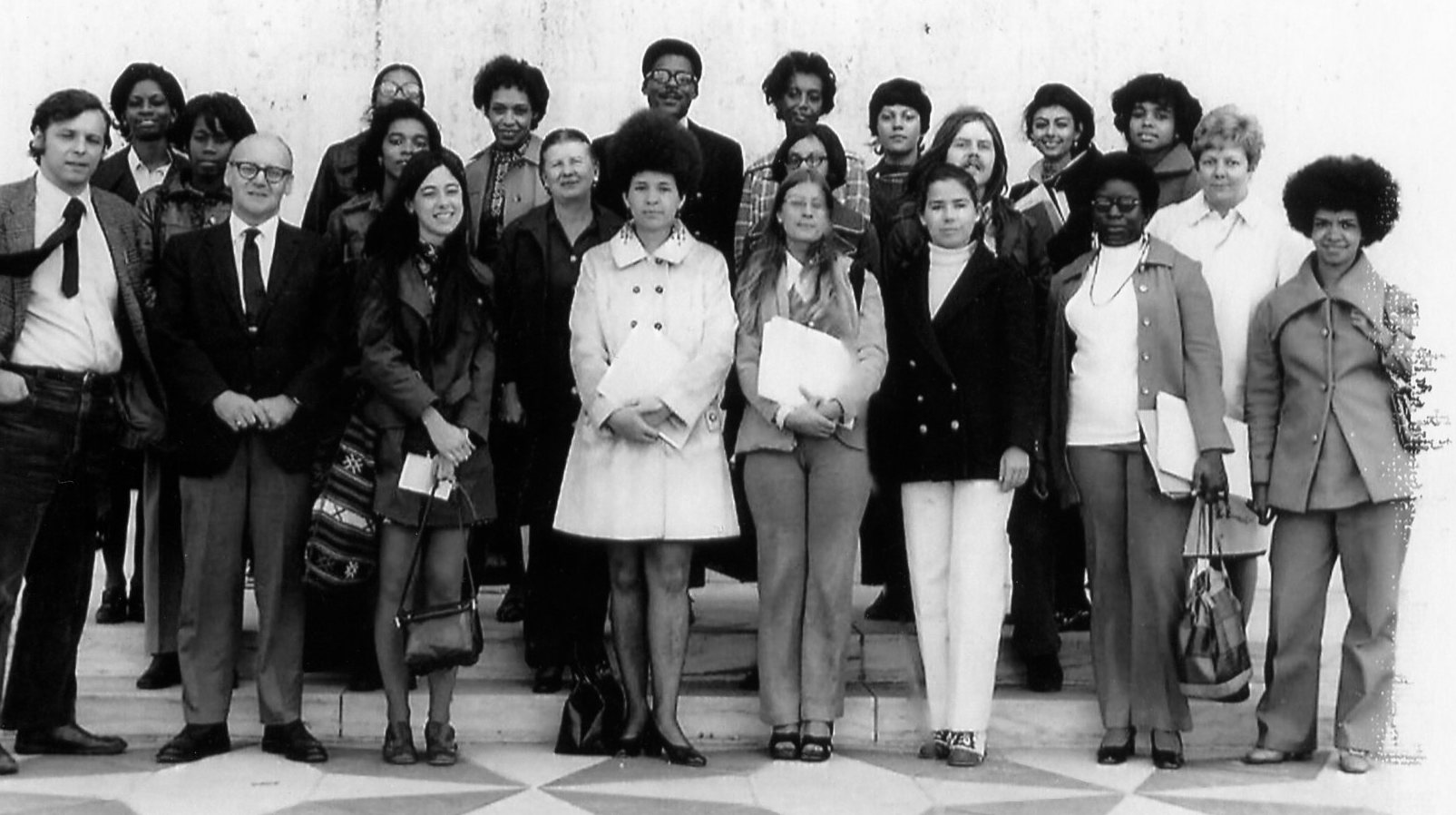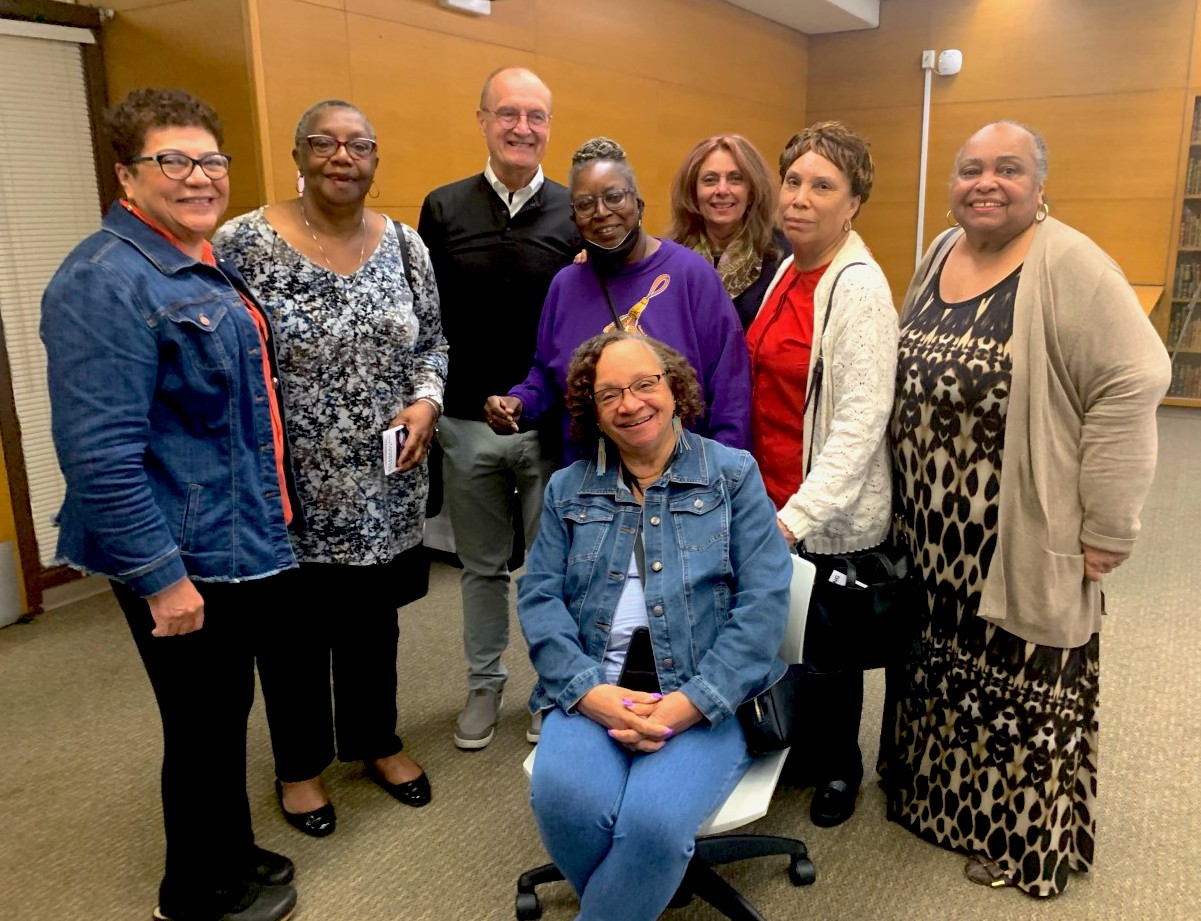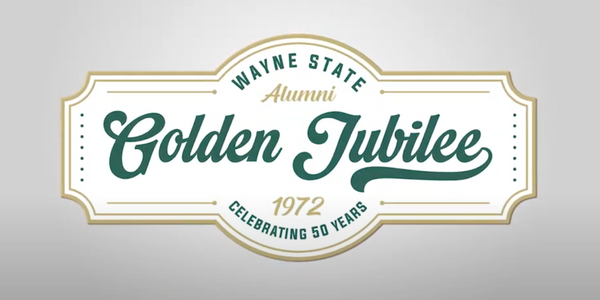SIS celebrates 50th anniversary of groundbreaking library outreach program
In 1971, Wayne State University Professor Genevieve Casey developed an experimental program to prepare 20 master’s students for “public library service to the urban disadvantaged.”
The program, referred to by members as “the institute,” was created in cooperation with the U.S. Office of Education and its goal was two-fold: “1) to recruit and prepare 20 students to be effective librarians working with the poor in urban public libraries and 2) to test a variety of common assumptions about what constitutes relevant and productive education for service in public libraries today and tomorrow.”

The diverse group of students selected to participate in the institute remained a cohort throughout the program, both in and out of the classroom. In addition to completing the core library science curriculum, the students’ elective courses and field experiences were tailored to the institute’s mission. Casey, who recognized the interdisciplinary nature of librarianship, worked with campus partners in several academic areas including social work, political science, economics and education. The group was co-directed by Michael Springer and Robert Holland from Wayne State’s Center for Urban Studies. With their backgrounds in sociology and political science, respectively, they were instrumental in recruiting lecturers from agencies and organizations in the city as well as prominent guest speakers including Rosa and Raymond Parks.
“Our close-knit group met every day in the same room and quite a few of us stayed in the same dorm,” said cohort member Angelita Espino. “We would go to breakfast together, then to class and then to the library to work on homework. Professor Casey kept us very busy!”
In addition to traditional coursework and presentations, the cohort participated in intensive seminars that included hands-on learning that gave the students a solid foundation in basic reference skills, program planning, acquisition and technical services. Casey also stressed the importance of understanding the needs of individual communities by researching census data and getting to know the social service agencies and organizations that served those particular neighborhoods.
“One of the things we had in common is that we were all passionate about the community service aspect of librarianship,” said Espino. “Public librarians truly are public servants, and they care so deeply about their communities. That’s what drew me to the profession.”

2022 marked the 50th anniversary of the program’s graduates. In honor of this golden milestone, nine of the 20 original members (Janice (Toler) Burnett, Angelita Espino, Dorothy Few, Sharon (Jordan) Holley, Cynthia Marquez, C. Lorene Royster, Yvette Shane, Jeanette (Johnson) Smith and Evelyn (Rollins) Tchiyuka) came back to campus for a reunion and celebration of the woman, often referred to as “Mother Casey,” who became a central figure in their education and development as librarians.
“We were so excited to have the opportunity to gather together again at Wayne State University and rekindle the special bond that was created 50 years ago,” said reunion coordinator Yvette Shane.
The group’s three-day visit included a tour of Wayne State’s libraries and a discussion with Thomas Walker, interim dean of the Wayne State University Library System and School of Information Sciences.
“I launched the discussion with the question: ‘Given that your cohort was brought together to improve equity in the field, did it work?’” Walker said. “I’ve seldom experienced a discussion like the one that followed. It was a frank conversation about how things have improved, and how they were glad they were able to contribute to their communities in positive ways, but there are still issues, anxiety and division that have cause some bumps in the road. It was remarkable and one of the most memorable experiences I’ve had in all my years in higher ed.”
Casey passed away in 2012 at the age of 96. At an earlier reunion in 2008, her former students created a scholarship in her honor — the Professor Genevieve M. Casey Endowed Scholars Fund — to continue to help support the education of LIS students dedicated to serving historically underserved populations.
“I’ve heard from library users who are now grown up about how important it was for them to come to the library and see someone who looks like them, who shares some of their experiences in one way or another,” Espino said. “Professor Casey sought out people of color to go into the communities to serve them in their information needs, but also to serve as a role model and mentor – an indication that ‘someone like me is a librarian and maybe that’s something I can do too.’”
 The Wayne State University Alumni Association recognized the Class of 1972 with a virtual Golden Jubilee celebration in September 2022. The commemorative video features several School of Information Sciences graduates and a virtual tour of campus. Watch the video for a trip down memory lane and to explore the changes that have taken place on campus over the last 50 years.
The Wayne State University Alumni Association recognized the Class of 1972 with a virtual Golden Jubilee celebration in September 2022. The commemorative video features several School of Information Sciences graduates and a virtual tour of campus. Watch the video for a trip down memory lane and to explore the changes that have taken place on campus over the last 50 years.